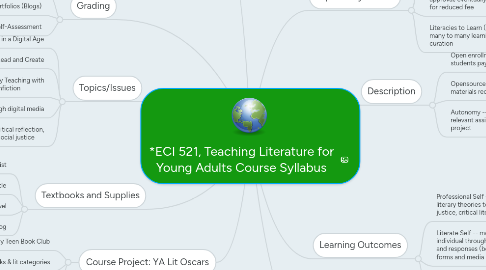*ECI 521, Teaching Literature for Young Adults Course Syllabus
af Dorothy Crissman


1. Grading
1.1. Contracts
1.1.1. Detail 1
1.1.2. Detail 2
1.2. Online Portfolios (Blogs)
1.2.1. Detail 1
1.2.2. Detail 2
1.3. Self-Assessment
1.3.1. Detail 1
1.3.2. Detail 2
